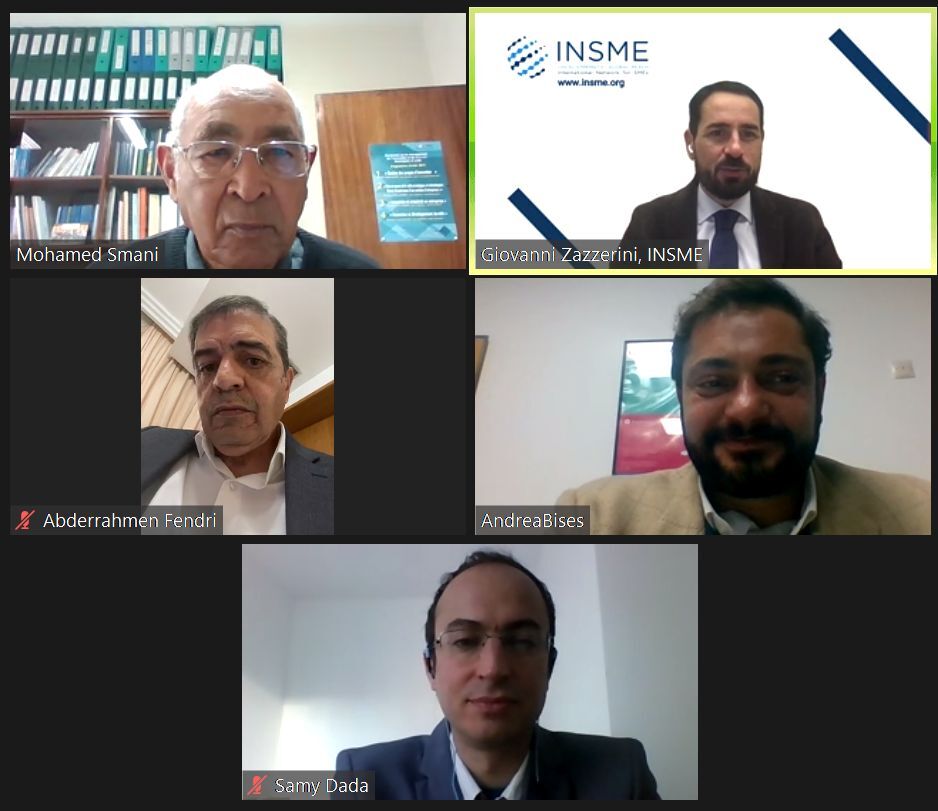The 7th Policy Lab, held on 15th December 2021, organised within the framework of THE NEXT SOCIETY project, was a unique occasion to learn how Morocco is about to put in place a new a fiscal incentive to encourage research and development. INSME Secretary General, Giovanni Zazzerini, briefly explained what Research Tax Credit is from a general point of view, and moderated the panel composed of Mohammed Smani and Abdelhak Chaibi, from R&D Maroc, Andrea Antonio Bises and Samy Dada, co-founders of SDS Consulting and Abderhammen Fendri, General Director, PWC, Tunisia.
Research Tax Credit allows businesses and eligible entities to offset funds invested in certain research-related expenses through a reduction in their taxes: Moroccan government used to have Research Tax credit back in 2000, but this measure was not producing positive effects and presented significant risks of windfall and fraud, therefore it was cancelled in 2008. Today, implementing a new RTC, tailor made on Moroccan peculiarities and entrepreneurial ecosystem, is a top priority to increase private spending on research and development, which are key factors for achieving productivity, growth, economic performance, and the achievement of social objectives.
RTC is a systemic measure capable of triggering investment in innovation, and SDS consulting conducted a study aimed at defining an RTC scheme with potential systemic impact to be implemented in the Moroccan New Development Model and to be proposed to the Moroccan parliament during the discussion on the Finance act. RTCs should clearly identify its target and criteria for eligibility, the benefits granted and monitoring rules, fundamental to ensure transparency and efficacy. The main stakeholders should be both public and private entities (Ministries, Innovation institutions, Employers Associations, Innovation Clusters, Private operators). If you would like to have a brief overview of the RTC model which will hopefully be implemented in Morocco, you can find a short presentation prepared by SDS Consulting here.
The technical assistance mission SDS carried out in the framework of THE NEXT SOCIETY PROJECT, financed by the EU, assessed also the potential impact this model of RTC could have on the overall system; a similar mission is starting in Tunisia, through the work of CONECT, Confédération des Entreprises Citoyennes de Tunisie. If you would like to know more about the activities INSME and other partners carry on through THE NEXT SOCIETY, you can find here the website.
If you want to go through the best practices for innovation implemented all around the world, you may visit this section of the INSME website.




